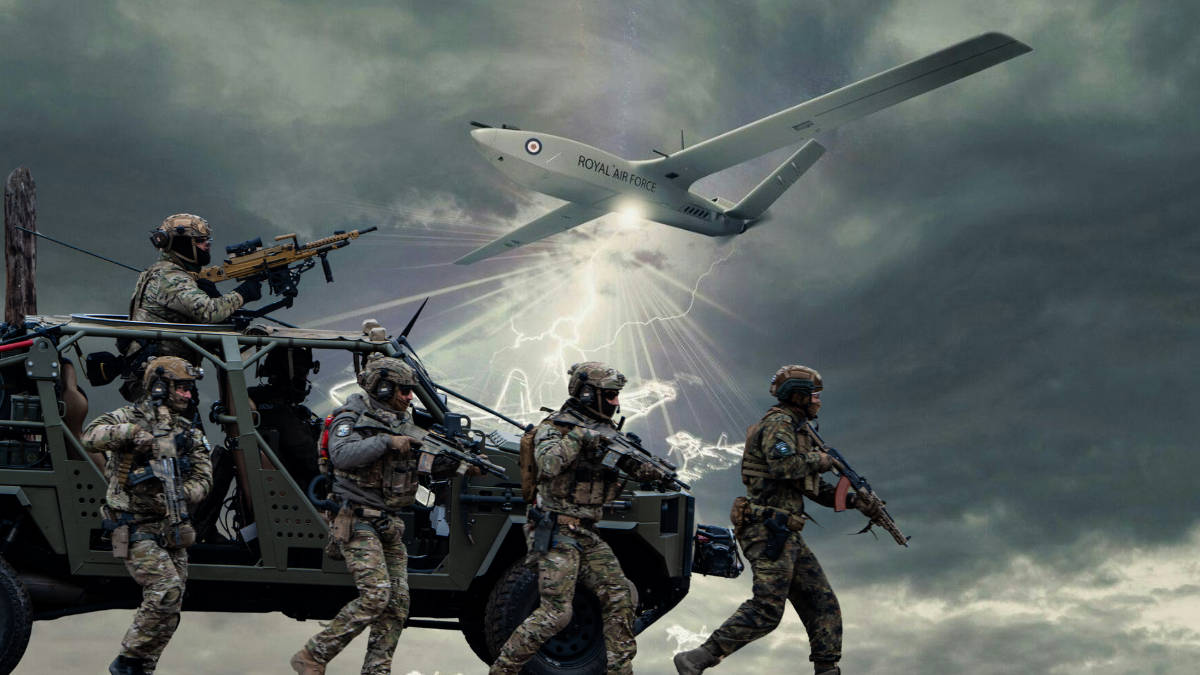10 July 2025, 11:24
Tekever, a leading European technology company specialising in AI-powered unmanned autonomous systems (UAS) has announced a major £400 million investment in the UK defence sector over the next five years.
Picture:
Tekever
The UK is entering its most significant defence transformation in over a century, as global threats escalate and NATO prepares for an era of sustained insecurity, according to former NATO Secretary General Lord Robertson of Port Ellen.
Writing in NATO Review, the former Defence Secretary argued the world is far less safe than during his tenure at the top of the Alliance, citing Russia’s war in Ukraine, rising support for Moscow from authoritarian states like China, Iran and North Korea, and an increase in hybrid attacks – including cyber operations, disinformation campaigns, and infrastructure sabotage – on NATO members.
“The UK and NATO are facing threats which are more serious and less predictable than at any point since the Cold War,” Robertson said. “We can no longer rely on the so-called ‘peace dividend’. The global security environment has changed – and our response must match it.”
His comments come after NATO leaders agreed a landmark defence spending pledge of 5% of GDP by 2035 at last month’s summit in The Hague.
Of that total, 3.5% will go to core defence spending and 1.5% towards resilience measures like critical infrastructure protection.
Read more: Starmer and Macron to strike fresh defence pact amid ‘new nuclear risks and multiplying threats’
Read more: Grey zone attacks ‘bring war to our doorstep’, MPs warn as UK told to toughen defences
Prime Minister Sir Keir Starmer meets with Defence Secretary John Healey and former Nato chief Lord Robertson of Port Ellen, head of the Government’s root-and-branch defence review.
Picture:
Alamy
In parallel, the UK has unveiled its 2025 Strategic Defence Review (SDR) – co-authored by Lord Robertson, foreign policy expert Dr Fiona Hill, and retired General Sir Richard Barrons – which sets out 62 recommendations to overhaul Britain’s armed forces. All have been accepted in full by Prime Minister Sir Keir Starmer’s government.
Under the new plans, UK defence spending will rise to 2.5% of GDP by 2027/28 and 3% by 2030 – marking what Robertson called “the most profound changes to UK defence in more than 100 years.”
The SDR makes clear that NATO must be the guiding framework for all British defence policy – from force design and procurement to training and doctrine. “Every decision must begin with the consideration of how effectively it can advance NATO’s objectives,” Robertson wrote.
Technology, he said, is at the heart of the transformation. The review calls for a “constantly evolving” military structure blending traditional capabilities with AI, robotics, uncrewed systems, quantum computing and bioscience.
The UK government has already pledged £1 billion towards digitally integrating the armed forces, alongside a doubling of investment in autonomous systems and the launch of a new Drone Centre.
Robertson pointed to the war in Ukraine as a wake-up call for the West, noting that 80% of casualties in Russia’s invasion have reportedly been caused by one-way attack drones. “Whoever innovates fastest will maintain the upper hand,” he warned.
The review also aims to position defence as an economic growth engine, recommending closer partnership between the Ministry of Defence and industry. Defence already supports 440,000 UK jobs, and upcoming investments in long-range weapons and munition production are expected to create 2,000 more.
Portuguese drone and AI company Tekever has pledged £400 million for UK-based defence tech over the next five years, a sign Robertson says reflects growing investor confidence.
Beyond traditional military reforms, the review calls for greater national resilience – including a new Defence Readiness Bill, more public awareness of threats, and voluntary service opportunities for young people. “Without security, there is nothing else,” Robertson wrote. “There are no thriving public services in conflict zones.”
The government has accepted these proposals, aiming to rebuild public engagement with defence and prepare the population for future crises.
Robertson said the UK’s new defence strategy reflects the urgency of the times. “The changed global environment demands action today,” he wrote. “This Strategic Defence Review is a toolkit for protecting our way of life at an uncertain and volatile historical moment. It is a huge opportunity for Britain and NATO. Now we must deliver.”
